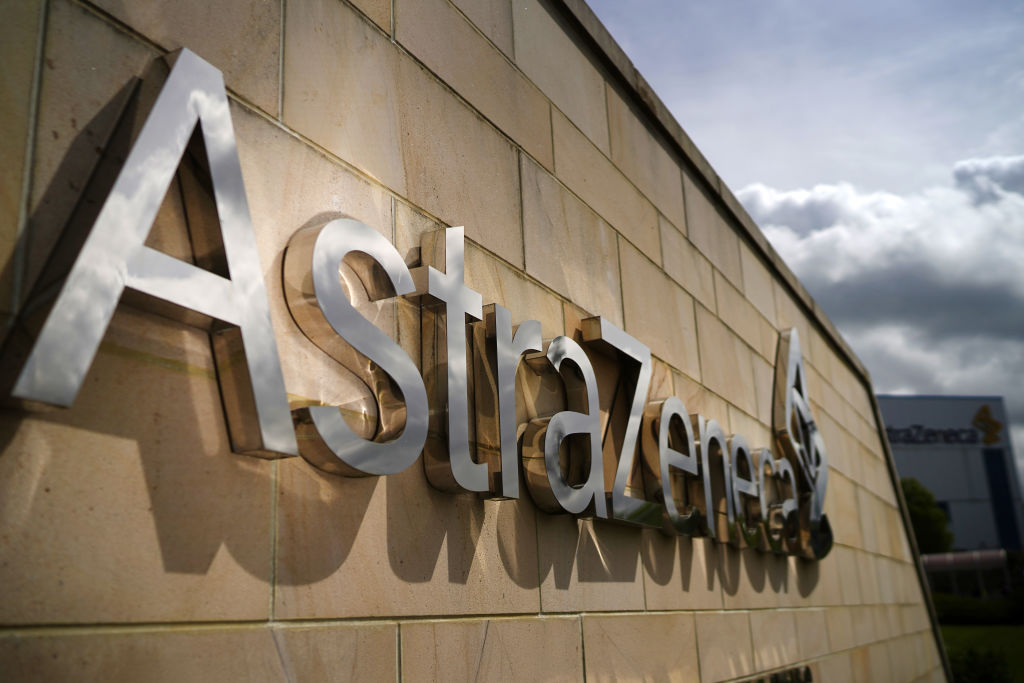
LogicBio’s lead gene-editing therapy is emerging from a clinical hold, cash reserves to support that program are dwindling, and the company is losing its stock listing. AstraZeneca is easing the pressures on the biotech with a $68 million buyout that the pharmaceutical giant sees as a way to add a new genetic medicines dimension to its rare disease drug pipeline.

With the Rise of AI, What IP Disputes in Healthcare Are Likely to Emerge?
Munck Wilson Mandala Partner Greg Howison shared his perspective on some of the legal ramifications around AI, IP, connected devices and the data they generate, in response to emailed questions.
AstraZeneca announced Monday that its Alexion rare disease unit has agreed to acquire all outstanding LogicBio shares for $2.07 each. That’s a more than 666% premium to LogicBio’s closing price on Friday, but still well short of the $10 per share that the Lexington, Massachusetts-based biotech was able to fetch when it went public four years ago. LogicBio shares closed Monday at $2.01 apiece.
LogicBio is part of a new contingent of companies developing alternative approaches to gene editing. Most gene editing technologies employ a cutting enzyme to snip DNA at a targeted location. Those approaches introduce the risk of dangerous or unwanted edits. LogicBio uses a natural DNA repair mechanism as a way to precisely insert a gene. The company calls its technology GeneRide.
Lead LogicBio program LB-001 is currently in Phase 1/2 testing for methylmalonic acidemia (MMA), a rare inherited disorder that leads to developmental delays and other complications that require hospitalization. The one-time treatment is designed to knock in a corrective gene to drive proper expression of a key protein.
The FDA placed a clinical hold on the trial in February, a pause that came after the company reported a second patient in the study developed thrombotic microangiopathy, a blood vessel complication that has been associated with other genetic therapies delivered by adeno-associated viruses. Those cases in the LB-001 study resolved. In May, the FDA lifted the clinical hold after the company changed the clinical trial protocol to increase patient monitoring, which in turn will lengthen the time needed to complete the study. The study has a targeted enrollment of eight patients.
In addition to the regulatory setback, LogicBio has money problems. The company’s financial reports for the past year raised doubt about the company’s ability to continue as a going concern. According to its report of second quarter 2022 financial results, LogicBio’s cash position was $38.8 million as of June 30—enough money to last another year. Adding to the problems is the looming loss of its Nasdaq listing. Last month, the exchange sent the company a formal delisting notice for failing to maintain a minimum $1 price despite having a 180-day grace period to regain compliance with the requirement.
Despite the financial woes, LogicBio’s lead program has resumed and is showing encouraging signs. In August, the company reported preliminary results for four patients in the Phase 1/2 study showing detection of a biomarker in the blood that indicates integration of the gene carried by the therapy. Results also showed expression of the key protein. In a research note, William Blair analyst Raju Prasad wrote that while the exact levels of the biomarker remain undisclosed, LogicBio suggested that they are not currently at levels to have an impact on disease regression. However, the company hopes those levels will increase over time.
The results so far apparently gave AstraZeneca enough confidence to acquire LogicBio. In addition to a platform for delivering and inserting genes, the company also has a platform for improving viral vector manufacturing. The pharma giant said that those technologies will become part of its strategy for developing new medicines for rare genetic diseases.
“The proposed acquisition of LogicBio is a significant development for our growing research in genomic medicine,” Marc Dunoyer, CEO of Alexion, AstraZeneca Rare Disease, said in a statement. “LogicBio’s people, experience and platforms provide new scientific capabilities by adding best-in-class technology and expertise to our genomic medicine strategy.”
The AstraZeneca rare disease unit is the product of an acquisition. In 2021, the pharma giant paid $39 billion to acquire Alexion Pharmaceuticals, a company with blockbuster drugs for rare blood disorders. The boards of directors of both AstraZeneca and LogicBio have approved the LogicBio acquisition, which is expected to close in the next four to six weeks. Alexion is based in Boston. The AstraZeneca subsidiary plans to keep LogicBio employees at their current location in nearby Lexington.
Photo: Christopher Furlong, Getty Images














